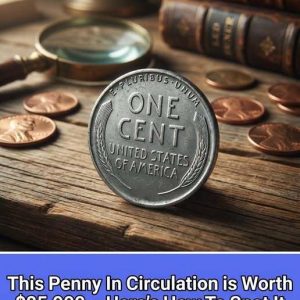From the moment she first crossed paths with Daniel in that crowded café on Brighton Hill, the narrator felt something shift. Daniel entered her life in disarray—phones ringing, credit cards scattered, the kind of chaotic energy few could find grounding. But he had a magnetism that stirred something deeper: a steadiness that contrasted sharply with her own restless heart. Where she felt untethered and searching, Daniel exuded warmth and calm. In the swirl of café noise and clinking cups, despite the mess, something about him felt grounding and sincere, as if he carried not chaos, but possibility wrapped in human, flawed charm. Their initial chaotic meeting carried all the hallmarks of a story starting out messy—but unexpectedly real.
As their relationship unfolded, that messy charm revealed a deeper, quieter consistency. Daniel became not just a presence, but a safe harbor. His attentiveness, his genuine kindness, the way he looked at her with warmth—these things stood in contrast to her habitual unease. Slowly, naturally, a rhythm grew between them. What began as a chance meeting transformed into a connection that felt almost inevitable, like two people finally discovering a shared heartbeat. In that rhythm, she found hope: hope that love didn’t always have to be turbulent — that it could also be tender, gentle, and rooted in steadiness.
The revelation that Daniel had a son, Evan, only deepened the feeling that what was unfolding between them could become something enduring and whole. To her, Evan wasn’t a complication. He was, perhaps, the most meaningful dimension of what their future could be. She welcomed him with open arms, imagining not just a partnership with Daniel, but a family—childhood birthdays, shared meals, holidays, inside jokes, and a sense of belonging that felt both new and familiar. She saw herself not only in love, but in mothering: offering a stable presence, a warm home, a place where Evan could thrive. Her hopes wove together love, motherhood, and family, forming a vision of the future she was ready to embrace.
And then came the proposal. It didn’t feel forced or dramatic — it felt natural, the culmination of all that love, hope, and trust she had built with Daniel. Saying yes was easy, inevitable even. She believed in that future they had begun building: a life defined by unity, mutual care, and shared dreams. The anticipation of the wedding, of merging lives and histories, of giving and receiving love and safety — it all felt real. She allowed herself to believe with abandon: in a home filled with laughter, in quiet mornings and shared dinners, in a family that included both Daniel and Evan, wrapped in the gentle warmth she had longed for.
But everything changed the day little Evan knocked on her door in a small, solemn suit — elegant, neat, and somehow heartbreakingly serious. In his hands he carried an envelope heavy with truth, and with it, the final unraveling of the dream she had so lovingly built. His quiet voice broke open the illusion: “Don’t marry my dad.” Inside the envelope lay a trove of emails and legal documents — meticulously laid out — that exposed a scheme of cold calculation. Daniel’s plan had been to marry her, let time wear on, and then – under the pretense of emotional distress — divorce her, claiming half of her assets. The horror wasn’t just in the betrayal of love, but in the way what she had considered a future, a home, a family, had been nothing but a trap. Shock, confusion, dread — in one instant, everything she believed in crumbled.
Shaken though she was, the narrator acted with clarity. She confronted Daniel, offering a prenuptial agreement — a final chance, a test of whether his promises had ever meant anything more than money. His refusal was immediate, sharp, telling. The dream died there. She walked away, not just from the wedding, but from the vision of a family she had allowed herself to cherish. The emotional rupture was profound: this wasn’t only the loss of a partner, but the dissolution of a future, of love, of what could have been. And yet — even through the heartbreak — she discovered something vital about herself: strength, dignity, and the courage to protect her values and sense of self-worth.
In the aftermath, her gratitude toward Evan — the boy who had spoken truth when she was too blinded by love to see — deepened into something ineffably intimate and important. Though their paths diverged, the letter he gave her remained: not as a token of sadness, but as a silent tribute to his bravery, his empathy, and his uncanny wisdom beyond his years. That wooden box where she keeps it is now more than a container — it’s a symbol. A reminder that sometimes, salvation arrives not with grand gestures or dramatic reveals, but softly: in the hands of someone small and vulnerable, yet courageous enough to speak the truth. His act saved her, not only from betrayal, but from losing herself in someone else’s design. Through him she rediscovered worth, agency, and the quiet power of walking away — even when love once seemed like everything.



